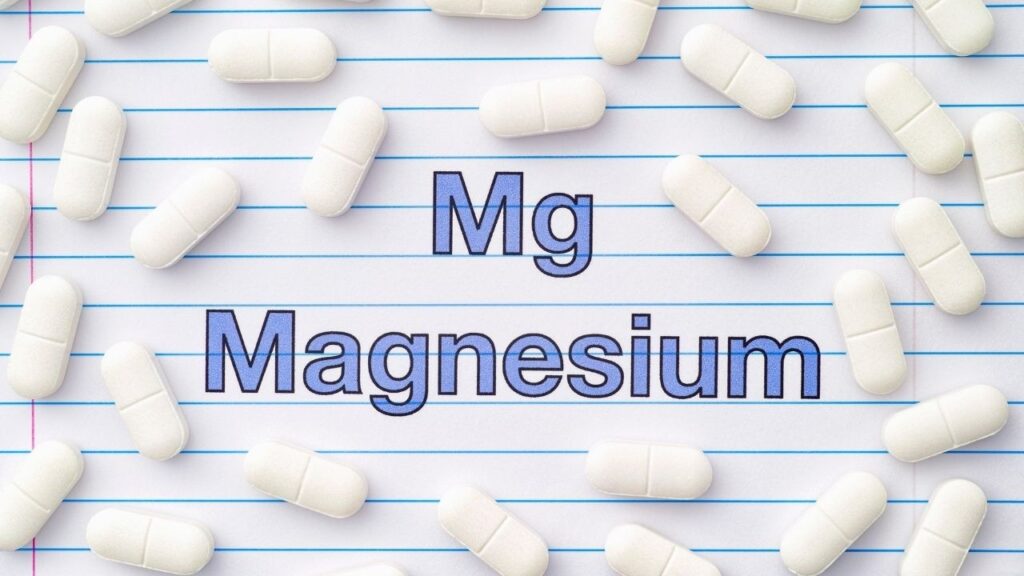Ever toss and turn at night, staring at the ceiling while your mind refuses to switch off? You’re not alone. Millions struggle with poor sleep quality, restless legs, or middle-of-the-night wakeups—and while we often blame stress or screens, there’s another culprit hiding in plain sight: magnesium deficiency.
Doctors and sleep experts have been calling magnesium “the relaxation mineral” for a reason. It plays a vital role in calming the nervous system, relaxing muscles, and regulating melatonin — the hormone that controls your sleep-wake cycle. But here’s the thing: not all magnesium supplements are created equal, and choosing the best magnesium for sleep can make all the difference between lying awake and drifting into deep, restorative slumber.
In this guide, we’ll explore why magnesium matters for sleep, the different types of magnesium and how they affect your body, and finally, which form doctors recommend for getting the best rest of your life.

Why Magnesium Matters for Better Sleep
1. Magnesium’s Role in the Body
Magnesium is an essential mineral involved in over 300 biochemical reactions in the body. It helps regulate nerve function, muscle relaxation, and even mood balance. When magnesium levels drop too low, you might experience:
- Muscle cramps or twitches
- Anxiety or restlessness
- Difficulty falling or staying asleep
- Morning fatigue
Essentially, magnesium works as your body’s natural chill pill. It binds to GABA receptors (the same neurotransmitters targeted by anti-anxiety meds), promoting relaxation and reducing neural activity. When your magnesium levels are optimal, your body naturally transitions into a calmer state, ready for sleep.
2. The Magnesium-Melatonin Connection
Melatonin gets all the credit for sleep, but magnesium is what helps it work properly. Magnesium supports the pineal gland—the part of the brain responsible for melatonin production. Without enough magnesium, your melatonin rhythm can become irregular, leading to insomnia or inconsistent sleep cycles.
Moreover, magnesium helps balance cortisol, your body’s main stress hormone. High nighttime cortisol levels are a leading cause of sleeplessness. By keeping cortisol in check, magnesium sets the stage for restful, uninterrupted sleep.
Signs You Might Be Low in Magnesium
Most people don’t realize they’re deficient in magnesium because the symptoms are subtle or often mistaken for something else. Common signs include:
- Frequent muscle cramps or twitching
- Restless legs, especially at night
- Headaches or migraines
- Feeling anxious or stressed for no reason
- Poor concentration or brain fog
- Difficulty sleeping or waking up groggy
A diet high in processed foods, caffeine, or alcohol can also deplete magnesium levels. Even healthy eaters can fall short because modern farming practices have reduced magnesium content in soil—meaning even vegetables may have less magnesium than they used to.

The Different Types of Magnesium (and Which One’s Best for Sleep)
Not all magnesium supplements are the same. Each form varies in absorption rate, effect, and potential side effects. Let’s break down the most common types and see which ones are best suited for sleep support.
1. Magnesium Glycinate – The Gentle Sleep Promoter
Best for: Relaxation, anxiety relief, insomnia
Magnesium glycinate (or bisglycinate) is a highly absorbable form that’s bound to glycine — an amino acid known for its calming properties. Doctors often recommend it for people who struggle with anxiety, muscle tension, or sleep problems because it’s gentle on the stomach and doesn’t cause digestive upset.
Why it helps sleep:
- Enhances GABA and glycine levels in the brain
- Promotes deep relaxation without drowsiness
- Supports stable sleep cycles
If you’re sensitive to supplements or have digestive issues, magnesium glycinate is your best bet.
2. Magnesium Threonate – The Brain-Boosting Option
Best for: Cognitive function, insomnia from overthinking
Magnesium L-threonate is newer on the market but has gained attention for its ability to cross the blood-brain barrier, increasing magnesium levels directly in brain cells. This makes it ideal for those whose insomnia is linked to racing thoughts, anxiety, or mental stress.
Why it helps sleep:
- Improves brain relaxation
- Enhances memory and mental clarity
- Supports circadian rhythm regulation
The only downside? It’s often more expensive than other forms—but for some, the mental calm it brings is worth the cost.
3. Magnesium Citrate – The Budget-Friendly Option
Best for: Occasional use, constipation-related sleep issues
Magnesium citrate is widely available and affordable. It’s a good general supplement but can have a mild laxative effect in higher doses, which isn’t ideal right before bed. However, if you experience constipation that disrupts your sleep, this could be a bonus.
Why it helps sleep:
- Relaxes muscles and nerves
- Helps the body unwind before bed
Just stick to a moderate dose to avoid digestive side effects.
4. Magnesium Malate – The Energy Balancer
Best for: People with fatigue or fibromyalgia
Unlike other forms that promote drowsiness, magnesium malate supports healthy energy production. It’s best taken earlier in the day but can be useful for those whose sleep troubles stem from low daytime energy or muscle pain.
Why it helps sleep indirectly:
- Reduces daytime fatigue
- Minimizes muscle soreness that interferes with sleep
5. Magnesium Chloride and Sulfate – The Topical Choices
Best for: Relaxing baths and sore muscles
If you’ve ever taken an Epsom salt bath, you’ve already used magnesium sulfate. These topical forms allow magnesium to be absorbed through the skin, relaxing muscles and easing stress.
How to use:
- Add 1–2 cups of Epsom salts to a warm bath
- Soak for 20 minutes before bed
- Alternatively, use a magnesium oil spray on legs or shoulders
These options are perfect for people who prefer a non-oral approach or have digestive sensitivities.

How to Choose the Right Magnesium Supplement
Choosing the right magnesium depends on your personal sleep challenges:
| Sleep Issue | Best Magnesium Form | Ideal Timing |
| Trouble falling asleep | Magnesium glycinate | 1–2 hours before bed |
| Restless legs | Magnesium chloride (topical) | Before bed |
| Racing thoughts | Magnesium threonate | Early evening |
| Constipation | Magnesium citrate | After dinner |
| Fatigue and pain | Magnesium malate | Morning or midday |
Pro Tip: Look for supplements labeled chelated magnesium, as these are better absorbed by the body. Avoid oxide forms—they’re cheap but poorly absorbed and often cause stomach upset.
When and How to Take Magnesium for the Best Results
For most people, taking magnesium 30–60 minutes before bed works best. Combine it with a relaxing bedtime routine—think dim lights, herbal tea, and screen-free time.
Dosage guidelines:
- Men: 400–420 mg per day
- Women: 310–320 mg per day
Always start with a lower dose and gradually increase if needed. Too much magnesium can cause digestive issues, especially with citrate forms.
Pair magnesium with vitamin B6 or taurine for even stronger calming effects. And don’t forget your diet—foods like almonds, spinach, avocado, and dark chocolate are all rich in magnesium.
Foods High in Magnesium for Natural Sleep Support
Before jumping to supplements, it’s wise to optimize your diet. Some magnesium-rich foods to include daily are:
- Leafy greens: Spinach, kale, and Swiss chard
- Nuts and seeds: Almonds, pumpkin seeds, cashews
- Whole grains: Quinoa, brown rice, oats
- Legumes: Black beans, chickpeas, lentils
- Dark chocolate: (70% cacao or higher!)
Adding these to dinner or a light evening snack can naturally increase magnesium intake and support better sleep over time.
Other Sleep-Boosting Nutrients That Work With Magnesium
To maximize magnesium’s benefits, pair it with other nutrients that promote calmness and sleep:
- Melatonin: Regulates your internal clock
- L-theanine: Found in green tea, enhances relaxation
- Vitamin D: Helps magnesium absorption
- Calcium: Works synergistically for muscle relaxation
- GABA: Enhances tranquility and helps you fall asleep faster
Think of magnesium as part of a team—each nutrient plays a supporting role in helping your body wind down.

Lifestyle Habits That Boost Magnesium’s Sleep Benefits
Even the best supplement won’t work if your lifestyle sabotages your rest. Try these science-backed tips alongside magnesium for maximum results:
- Limit caffeine and alcohol—both deplete magnesium levels.
- Create a bedtime ritual—try stretching, meditation, or reading.
- Avoid screens 1 hour before bed to support melatonin.
- Stay hydrated—magnesium works better in a well-hydrated body.
- Exercise regularly—light movement helps magnesium absorption.
Together, these habits and the right supplement can transform your nights.
Conclusion: The Sleep Mineral You’ve Been Missing
If you’ve tried everything for better sleep—herbal teas, blackout curtains, fancy pillows—but still wake up tired, magnesium might be the missing piece. This mighty mineral calms the nervous system, regulates hormones, and relaxes muscles—all the things your body needs for true, deep rest.
For most people, magnesium glycinate is the best form for sleep, combining high absorption with gentle, soothing effects. But whichever type you choose, consistency is key. Give it a few weeks of nightly use and pair it with good sleep hygiene—you’ll likely notice more peaceful nights and more energized mornings.
Sweet dreams start with smart choices—and magnesium might just be your body’s bedtime secret weapon.


